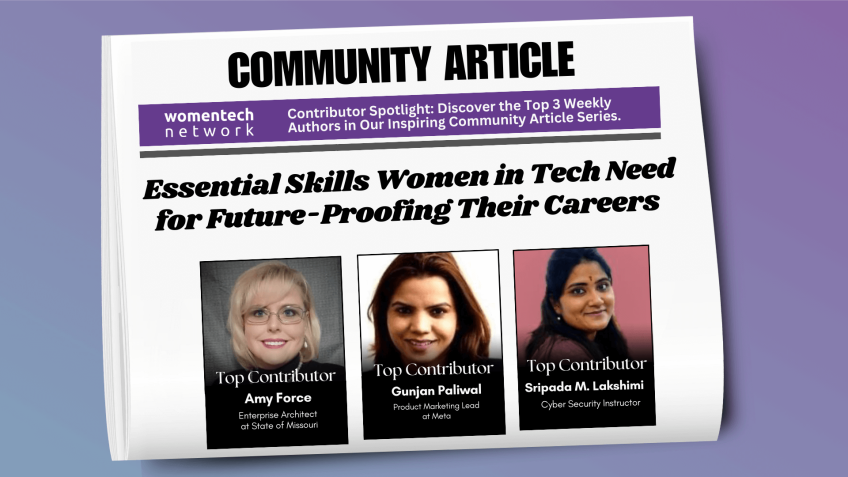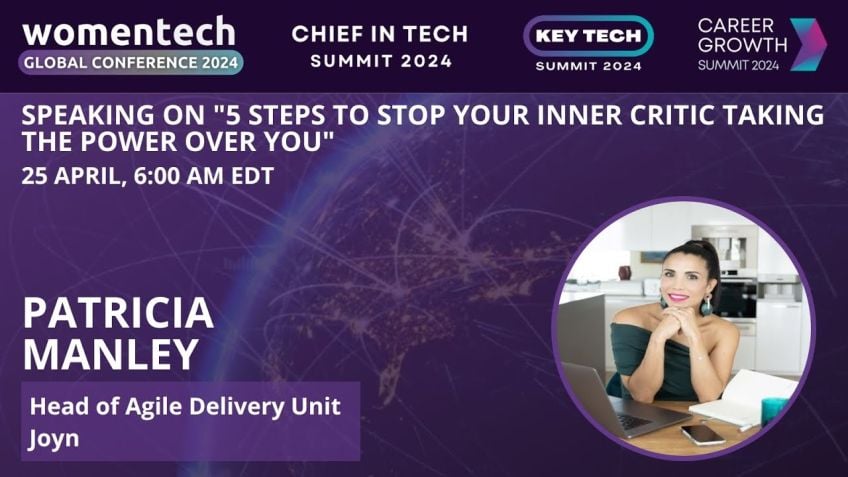The Art Of Undoing: Undoing barriers to authenticity & impact
Unlocking Your Authenticity: Towards Greater Impact and Fulfillment
In this world swarming with high achievers who often find themselves drowning in imposter syndrome and self-doubt, there's a dire need to circle back to one essential element of our lives: authenticity. In this blog, I'm thrilled to bring forth the insights gained over years of working as a leadership advisor for some of the world's leading companies like Twitter, Google, Facebook, and Pinterest. I've found that these seemingly invincible individuals seeking to make a greater impact paradoxically struggle with their own identities.
Authenticity and The Art of Undoing
When we talk about authenticity, we're discussing the art of undoing; undoing the mental walls we've built that prevent us from knowing and being ourselves. Achieving this level of authenticity can enhance our creativity, joy, and impact.
My Journey Towards Authenticity
My journey to understanding the essence of authenticity is no walk in the park. As an overachiever with perfectionistic tendencies, I spent most of my life wearing masks, ticking boxes, and collecting all the golden stars. Despite achieving profound success, including leading one of the largest global partnerships at Google, I was constantly battling feelings of inadequacy and failing in my own eyes.
What Does High Achievers Struggle With?
If you ask a high achiever about their identity, they are more likely to tell you about their insecurities than their achievements. We often get preoccupied with comparisons and fear of inadequacies. The shackles of perceived perfection often burden us to the extent of losing our real selves.
Awakening the Inner Authenticity
In 2013, after the birth of my second daughter who underwent significant health challenges, I had an epiphany: we have only one life to live, with no do-overs. This propelled me to stop waiting for situations and people to change and start creating a life that felt like mine. This fundamentally shifted my perspective, leading me to immense personal growth and maturity.
Understanding Authenticity
The term authenticity finds its roots in the Greek meaning of 'acting on one's own authority'. It’s not a grand destination but a moment-by-moment act of being true to yourself. Therefore, it's not something that can be taught, rather, it's about undoing the unconscious reactions that curtail us from being our authentic selves.
Triggers and Patterns Hindering Authenticity
Our identities are intricately woven into how we perceive ourselves and how we think we should be. This, in turn, dictates how we react when our identities are threatened. It's essential to recognize these triggers and defensive patterns.
Recognizing the Defensive Patterns
Our defenses typically follow one of three patterns when our identities are triggered:
- 'Shutting it down' - This involves withdrawal or isolation, keeping others at a distance to hide perceived flaws;
- 'Turning it up' - Here, we try to hide our flaws by fitting ourselves into the mould of what others expect us to be; and
- 'Firing away' - This entails aggression or defensiveness to keep people from noticing our flaws.
The Three-Step Process Towards Authenticity
The quest towards authenticity can be broken down into three simple steps: reflect, accept, and redirect.
Reflect: Self-awareness is the first step
When your patterns are triggered, instead of reacting, stop and reflect. This will help you understand the story you are playing out in your head. Remember that your reactions are not based on what happened, but on how you internalize and interpret the incident.
Accept: Embrace the Emotion
After reflecting, accept your thoughts and feelings without judgment, attachment, or rumination. This step allows you to take control of your emotional reactions rather than trying to control the thoughts themselves.
Redirect: Be Vulnerable
Lastly, redirect your actions towards how you want to show up in the world. It involves being open and vulnerable, stepping forward without your defensive shields, and deviating from the self-protective behaviors that hinder true authenticity.
Lets Authenticity Shine!
We need you to uncover your authenticity, embrace your unique gifts, skills, perspectives, and talents to create the impact only you can make. True authenticity does not alter you alone, it alters the world around you. Therefore, embrace authenticity, because the world desperately needs the real you.
Connect with Us!
Connect with me on Linkedin and Instagram for more insights and authentic conversations. Let's embark on this journey of uncovering authenticity together. Thank you very much for your time!
Video Transcription
And um I'm excited to be here with you because I don't think my story is unique, although I'm certainly excited to share it.I am now a leadership advisor and I work with teams and individuals at some of the biggest companies in the world like Twitter and Google and Facebook and Pinterest and Time and everywhere in between. And what I know is that when they are willing to be honest, when these individuals in these teams are willing to be honest, what I hear again and again is that they want to make a greater impact, but they don't know how they want more in their lives, but they don't know what they want to be themselves more fully, but they don't know who they are today.
We're talking about authenticity and the art of undoing, undoing all of the things which stand in the way of us knowing and being ourselves. Because when we can do that, it enables us to experience greater range, more creativity, more joy and have more impact. I believe that what we are intended to teach, we must first learn and I do not come to this work of authenticity and undoing easily. This isn't something I, I come to it with gritted teeth and white knuckles for most of my life. I am what I affectionately call an overachieving perfectionistic people, pleaser. I did all the things I should do. I became the person I should be. I checked all the boxes. I collected all the gold stars. I even worked at Google for 12 years, most recently leading one of the largest global partnerships uh for Google. And yet, no matter how great it looked on the outside, no matter how much it looked like I had it all together on the inside. I felt insecure like an imposter. I constantly was measuring myself up to everyone else and seeing where I was inadequate where my flaws were where I wasn't enough. And what I know is that almost every high achiever feels this way and has these thoughts. In fact, if you ask a high achiever who they are, they're going to tell you who they're not. If you ask a high achiever what their aspirations are, they'll most likely tell you about their fears of failure.
We spend so much of our time in our heads in this constant game of comparison, measuring ourselves up to everybody else and seeing where we fall short, short where we are weak, what our inadequacies are where we're not enough for me as an overachieving perfectionist. I wasn't anything enough. I wasn't skinny enough. I wasn't pretty enough. I wasn't smart enough or desirable enough or qualified enough. I wasn't good enough. All that changed. When in 2013, my second daughter was born when she was two weeks old, we discovered that she had a tumor on her spinal cord. Now it wasn't cancer but it was very serious. So at three months old, my tiny infant had a seven hour spinal neurosurgery. This was more serious than any surgery anyone in my family had ever had. And the pressure and the emotion and the stress of that day of that experience made me have a thought that entirely changed my life. Thankfully, my daughter is ok, but my life has changed entirely as a result of the experience. The thought was you have one life to live. There are no second chances, no do overs, you get one go round at this life. Why would you spend one more minute waiting to be happy?
And it was in that moment in that hospital room in the dark, in the middle of the night that I realized I was waiting for my life, the one where all the gold stars I'd collected all of the checks, the boxes I had checked, paid off and I finally felt happy and fulfilled and like my life felt like mine.
And I, I understood for the first time that if I wanted my life to feel like mine, I couldn't keep waiting for situations and people to change. It was up to me to make the changes. This is the fundamental shift I am inviting you to make today to stop looking out there for your problems, for your solutions, for your answers. And to start looking in here to your authenticity, to your truth because it is the only place where your answers actually exist when I had that thought everything in my life changed. And as a result, so much of my life has improved. The greatest change I made though was to undo who I thought I should be and free myself up to be me fully. And that is what we mostly call authenticity. Now, the word authenticity is so widely used. It is pretty much a cliche, right? Like we hear all the time, it's great. Well, meaning advice. Well, just go be yourself but like how really and which version or others excuse bad behavior or hurtful remarks saying, well, I was just being authentic just so, you know, that's not authenticity. It's insecurity in sheep's clothing.
So what is the word? Authenticity actually mean? The origin of the word in Greek means acting on one's own authority. That's it, it means that we get to be a choice with how we act, how we think, how we show up and how we live. So authenticity isn't some grand destination. It's not a place that we'll get to one day. It is the moment by moment act of being on purpose and with intention in the ways that we think act and live. Here's the catch though, I can't teach you authenticity because authenticity isn't what you do. It's what you undo. In order for us to talk about authenticity, we have to talk about what's getting in the way of us, knowing ourselves and being ourselves more fully. And that is our unconscious reactions, all of those ways that we're reacting unconsciously that keep us from being more intentional and authentic. So while I can't teach you authenticity, what I can teach you at least skim the surface of today is what is getting in the way. What patterns you're committing that you can start to look for and a simple three step process that you can practice immediately to start to become more intentional and authentic in the way that you show up and live and work. So let's get started. So what's standing in the way of our authenticity is our identity? Now, I recognize that identity is a very complicated term. So definitely, if you have questions, drop them in the chat and I'll try to address them at the end.
But what I mean by identity is who we see ourselves to be, who we think we should be and who we can't be. Our identity is not us. It's not the real, us. At least it is merely the way that we create connections with others and the world around us. See our survival instinct from the time we are born is to learn how to act and who we need to be in order to belong and be accepted because we depend on other people for our survival. So the more that we act in ways that get us the attention, the approval, the love, the survival that we need, the more we begin to believe that those things are necessary for us in order to survive and they become part of our identity. So that means that any time something triggers some part of us that feels contrary to that identity, it is going to immediately and instantaneously cause us to react out of a survival instinct. So the challenges for most of us, we don't see our identity, we just see it as who we are.
So we're going to do a quick activity that is going to hopefully help you see maybe some of your identity triggers that you didn't even realize you have, you just saw them as who you are. So if you have a pen and paper grab it, now, we'll do this very quickly. I urge you to take a few minutes at the end to really reflect on this more because it does take some time, but it's really worth it. So when it comes to work, how do you want to be perceived? So when you think about how you show up and how other people see you, how do you want to be perceived? How do you want others to think of, you write down 3 to 5 characteristics of how you want other people to see. You just take a couple of seconds. The first things that come to your mind don't edit yourself. OK. I'm gonna move on quickly. I'm sorry. Now think about how do I not want to be perceived? So when it comes to work, how do I not want to be seen? Write down 3 to 5 characteristics of ways that you just absolutely cannot imagine being seen as because they feel so contrary to how you see yourself. For instance, I want to be seen as smart as hard working as being a team player.
I cannot be seen as lazy, a failure, mediocre, stupid. I have a lot of things that I can't be seen as um and also entitled, that's a big one for high achievers. Most of us do not want to be seen as narcissistic or entitled or crazy. I hear that a lot too. So write these down either now or later. But the reason this is so important is that when we recognize these, these triggers of how we don't want to be seen, we start to see that any time we've even come close to being seen in some way, that is what we what is considered an unwanted identity. It is the quintessential elicit of shame and will cause us to react immediately without even being aware of it. Again, it goes back it's a survival instinct. So for most of us, while it's very difficult for us to see our identity, it is a lot easier to see where we were are reacting in self protection because we're doing this all over the place. So I'm gonna give you the big three reactive patterns to look for. These are the signs that your identity has been triggered and places where you're protecting rather than being authentic.
So the first of these reactive patterns, which again, there are three and these are all the ways that we react in self protection to keep people from seeing our flaws or like the cracks in our facade. So the first is what I call shutting it down. This is uh withdrawal or isolation, emotional or physical. The idea being if I'm further away from you, you won't see my flaws. So if you think about this in meetings, this is where we don't speak up even when we have something we want to say. Because what if you, what you say is stupid or has been repeated or people think you are dumb. This is shutting it down. You can probably see where you're doing some of this in your own life. The second is what I call turning it up. This is dancing for my dinner or perfecting pleasing performance all the way we turn ourselves, who we think we should be so that we hide our flaws. Because if we can hide our flaws by being who we, who we think the other person wants us to be. Then that feels ok for us. But again, it's a reactive pattern. This is mine and for many people please. This is most people, most people pleasers the third then is firing away. This is aggression or shaming criticism, defensiveness, offensiveness. This is uh if I'm firing at you, you are too busy defending yourself to notice my flaws.
So we see this when people play offense or when they come on the attack, when they tell us all the things that we're doing wrong or they blame us for all the problems, I'm sure you've seen this in your workplace and probably at home as well. So again, we're doing all of these all the time, but most of us have a default, right? So true. This is so powerful you guys like I teach this to everybody because when we start to see our own reactive patterns, it becomes a lot easier for us to begin to make changes. The other thing is, it also helps us see how everybody else around us is also reacting. So rather than us putting them as a jerk, we can start to see that they're just insecure and that helps us come from a place of empathy rather than protection. So this is so incredibly important because we are walking through the majority of the moments of our day with shields up in self protection rather than being vulnerable and authentic. No wonder we're exhausted all the time. It's exhausting to carry a shield even if we don't know we are. But here's the thing, the more we try to protect ourselves with this idea that doing so will actually help us belong and have more impact. It works in the exact contrary, it is working against us.
We are most impactful when we are most authentic and the world needs the unique impact that each of us can make. It doesn't need us coming from a place of shields and protection. It needs us coming from a place of intention and authenticity. So how do you begin to drop the shields? So the first I'm gonna, so I'm going to quickly give you a simple three step process that you can practice all the time, really, really important to recognize your patterns because that's what's going to help you make the shift in the moment. But once you do, you can practice these three steps, reflect, accept and redirect. Let's walk through them really quickly and certainly ask questions if you've got them. Self awareness is key. Absolutely. So in the first step, this is reflect the idea here is as soon as you just got triggered, as soon as you notice one of your patterns coming up rather than reacting, stop and reflect what is the story I'm telling myself, look inward. Most of the time we're telling ourselves really bad stories and we are our worst critics. So what is the story? And what are, what are your physical actions that you're experiencing?
Just to give you a simple example, let's say for instance, that you are proposing something, a project that you've been working on for your manager and you're super excited about it and you tell him all about it and his reaction is, is that all you got, uh I think all of us would react in that moment.
I mean, we're going to be flooded with all of the thoughts. So before you react with one of those patterns, stop and reflect what is the story, how did I just interpret his response? And what am I doing with it? For many of us, the story that's playing out silently in our heads is, oh my God, I'm such a failure. I can't believe that he doesn't like this. I am gonna get fired and when I get fired, I'm gonna lose my job. I'm gonna lose my house and I'm gonna live under a bridge because by the way, for most of us, we're night maring most of the time instead of dreaming. So for many of us, we end up living under a bridge in our nightmares. I hear it all the time. So, but here's the thing, the reaction that you were getting ready to have was not based on what he said. It's based on the story and how you just played it out in your head and immediately jump to that conclusion and are trying to protect yourself from it. So once you reflect and you notice the story, the second is accept, this is crucial because we can't control the thoughts that we have. The thoughts that we have are just like digestion for our brain. So these are old patterns that have been there for a long time.
So they're gonna come up. So rather than trying to control the thought, simply control the attention you put to it. When you allow the emotion to come up and the thought to be there without doing anything to it, it will pass quickly. Neuroscience is proven that the emotional, the lifespan of an emotion is 90 seconds. If you don't do anything with it, the only thing that prolongs it more than that is when you attach to it and ruminate over it. So just let the story come up, let the emotion come up and be there. Don't attach to it. In the example. It took years to learn it. It's such a powerful lesson. It's hard. It's not easy. It's uncomfortable because the reason we react is because we're trying to keep ourselves from feeling the feeling. But when you can allow yourself just to feel it for 90 seconds, it will go away and it can entirely change your life. So in this example, let's say you, you notice the story is I'm a failure. I'm gonna get fired and I'm gonna, you know, live under a bridge rather than reacting or shaming yourself for noticing that you or have that, that story say, oh, hey, old friend, give yourself a high five because you just heard yourself telling yourself the story that you have been telling yourself pretty much all of your life.
So celebrate the catch rather than shaming yourself for having done it in the first place. We cannot change what we do not know. So the awareness here and the acceptance of it is critical. The third step then is redirect. We all know generally how we actually want to show up. So this sounds a lot more complicated than it really is. This is about allowing ourselves to come back to a place of center and step into a moment on purpose with vulnerability rather than in protection and shield it up. So if we think about what this looks like, in example that I was just giving more than likely rather than reacting in self protection, acting with intention is going to be slowing down and getting curious rather than launching forward and getting protective. So it might be to say, can you tell me what you mean by that or what were you expecting something like that? It's really much more about the energy and being open with how we're asking the questions because we can say those same words in still a very defensive and protective way. So it's about opening ourselves up vulnerably to the moment, not having a shield up.
So I know that's a little complicated but it's, it's actually about just being willing to take a step bravely without the shield letting go of the shield. What's so important here is that you do this very slowly but that you do it as quick as often as you can. So we're at time. So I'm gonna leave you with this. I know you, I know that you are empathetic, you're intuitive and you're intelligent, you are driven to do good, hard work and to make a difference in this world. We need you to step forward in your fullest highest self in order to drive the changes this world needs. There has never been and there never will be another. You in the entire history of humanity. You have a unique combination of gifts, skills, perspectives and talents. This world will miss out on if you do not discover them, embrace them and share them. We need you because the more authentic you become, the more you expand your range, your joy, your creativity and your impact. And when you do that, you don't just change yourself, you change the world. That's not just possible, it's inevitable. All right, I have like one minute for questions. If you have any questions, I'm happy to take them for you now. And thank you so much for being an amazing audience and listening in. Please feel free to follow me.
On linkedin or connect with me there or certainly on um Instagram as well. Does anyone have any questions in the last minute? All right. Well, I hope that you will continue to practice awareness and undoing because the world really does need your authenticity. We desperately need it.
So, thank you very much for being an amazing group and I hope you enjoy the rest of the conference and I hope to see you again soon. Thank you so much.





